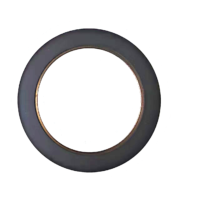Magnetic Target (Encoder Disc) For Position Sensing
Rubber multi-pole encoder discs are widely used as magnetic target in Hall effect sensing for speed and position detection, particularly excelling in applications requiring non-contact high-precision measurement. These encoder rings incorporate multiple alternately arranged north and south magnetic poles, enabling rotational speed and angle measurement when combined with magnetic chips.
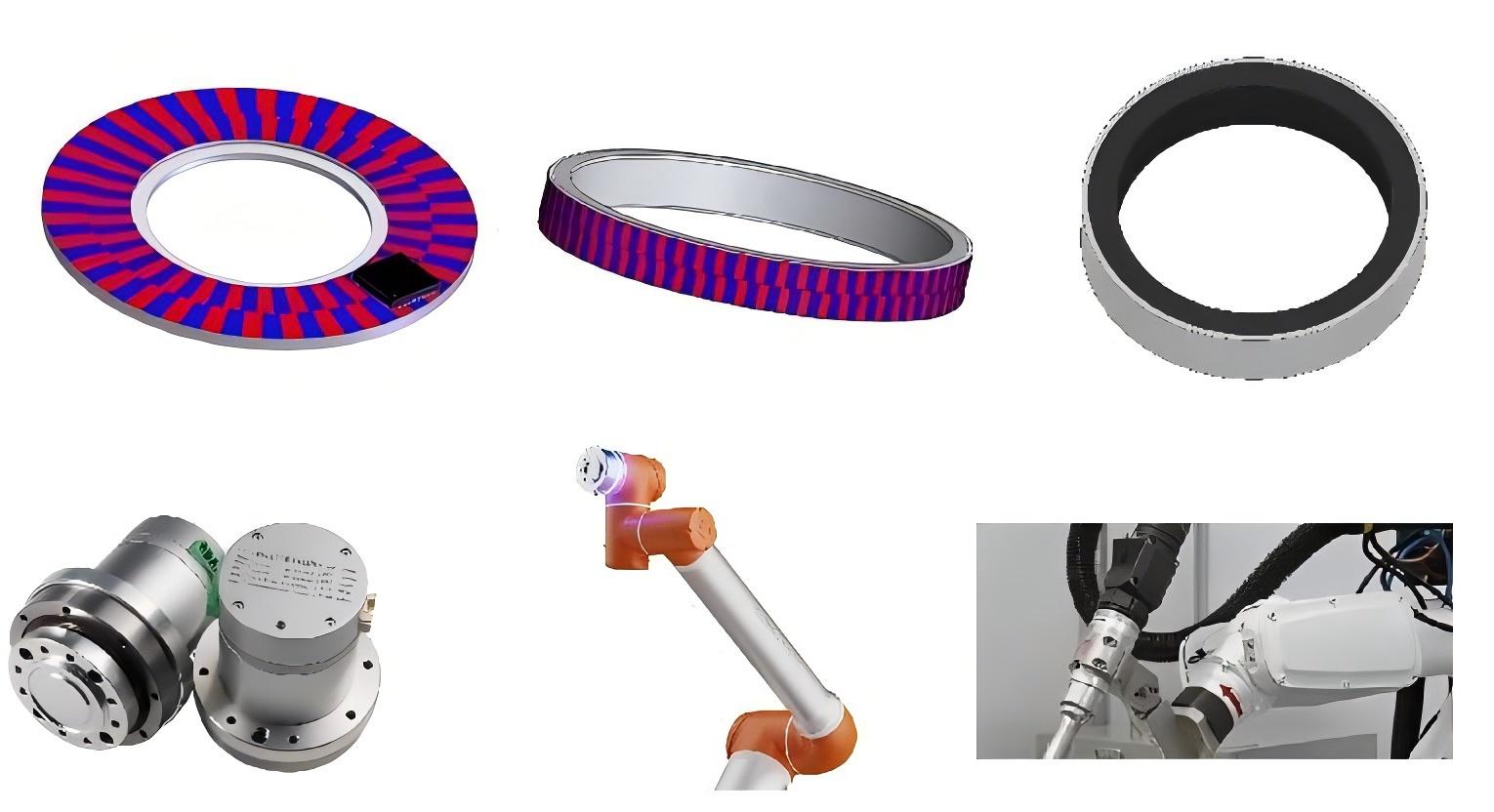
Magnetic ring is made with ferromagnetic rubber bonded to metal.It is used to work with magnetic encoder as target for position or speed detaction.
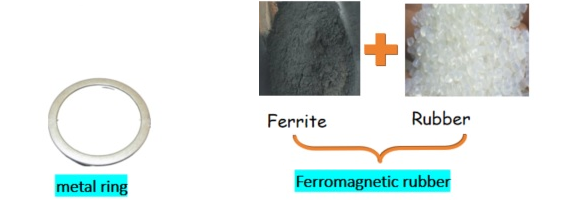
Below are some of their typical application scenarios:
-
Compact Space Applications
Thanks to the flexibility and ease of molding of rubber materials, these encoder rings can be adapted to systems with limited space. This advantage makes them particularly critical in small-sized motor encoders, servo motors, and robotic joints—where compact design and lightweight components directly impact device performance.
For example, in the automotive industry, when there is insufficient space inside a transmission to install metal target gears, rubber encoder rings can serve as an alternative solution. -
Adaptation to Harsh Working Conditions
Encoder rings made of nitrile rubber (NBR) and ferrite composite materials leverage the elasticity of the rubber matrix to withstand harsh environments such as temperature shocks, dust, water immersion, and oil contamination. -
Non-Contact Detection Requirements
Encapsulated with non-ferromagnetic materials, these encoder rings enable non-contact speed sensing. This design not only avoids mechanical wear but also significantly extends the service life of both the encoder ring and the sensor. -
High-Precision Speed Detection
The multi-pole design provides excellent magnetic pole positioning accuracy, enabling precise speed and position detection. Compared to metal target rings, which require high-precision machining equipment and longer manufacturing cycles, rubber magnetic encoder rings offer a better cost-performance advantage under the same accuracy requirements.
2-track encoder disc
It is used as the magnet target of absolute magnetic encoder. The magnetic encoder calculates the absolute position through the difference between two nonius magnetic signals.
The most typical application currently is in the joints of robots, which requires precise motion positioning and minimal installation space.
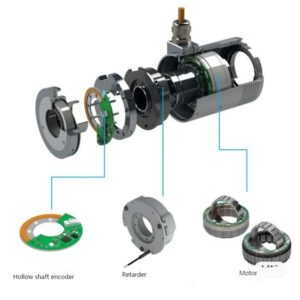
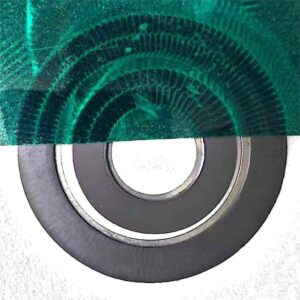
Standard Products
Our series of products can be used for speed and angle detection in magnetic encoders. When paired with chips such as IC HAUS MU150 and MU200, they can achieve incremental or absolute single-turn encoders. Available with 16/32/64 magnetic pole pairs and optional single/dual-track configurations.
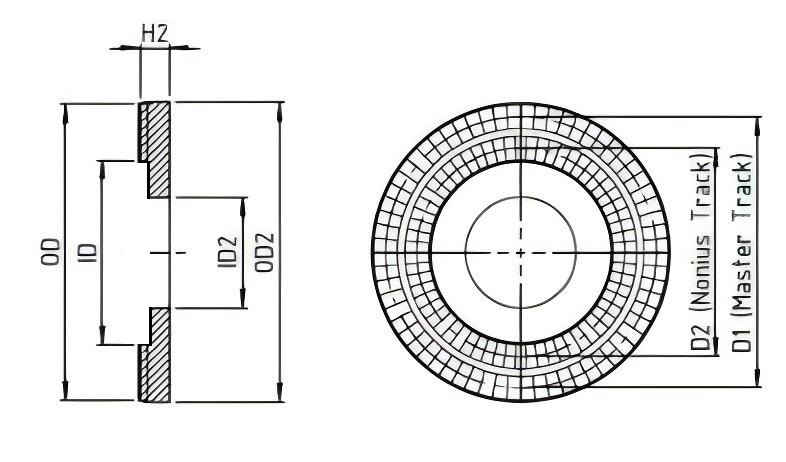
| IC MU200 | |||||||
| Number of pole pairs on master track | Number of pole pairs on Nonius track | ID2 | 0D2 | Diameter of master track | Diameter of Nonius track | Pole width of master track | Pole width of Nonius track |
| 32 | 31 | 25mm | 44.5mm | 40.8mm | 32.8mm | 2mm | 1.66mm |
| 64 | 63 | 62mm | 85mm | 81.5mm | 73.5mm | 2mm | 1.83mm |
| IC MU150 | |||||||
| Number of pole pairs on master track | Number of pole pairs on Nonius track | ID2 | 0D2 | Diameter of master track | Diameter of Nonius track | Pole width of master track | Pole width of Nonius track |
| 64 | 63 | 47 | 65 | 61 | 54 | 1.5 | 1.34 |
| 32 | 31 | 18 | 34.5 | 30.6 | 23.4 | 1.5 | 1.34 |
| IC MU | |||||||
| Number of pole pairs on master track | Number of pole pairs on Nonius track | ID2 | 0D2 | Diameter of master track | Diameter of Nonius track | Pole width of master track | Pole width of Nonius track |
| 64 | 63 | 38 | 56 | 52.2 | 45 | 1.28 | 1.12 |
| 32 | 31 | 15 | 29 | 26 | 18.88 | 1.28 | 1.12 |
Quality Control
We utilize IC-HAUS MU series chips to perform 100% factory testing on all products: the magnetic ring, serving as the magnetic target matched with the chip, requires signal reading on the test bench at specified speeds and positions.
As illustrated, the In Range data is the primary metric we focus on.
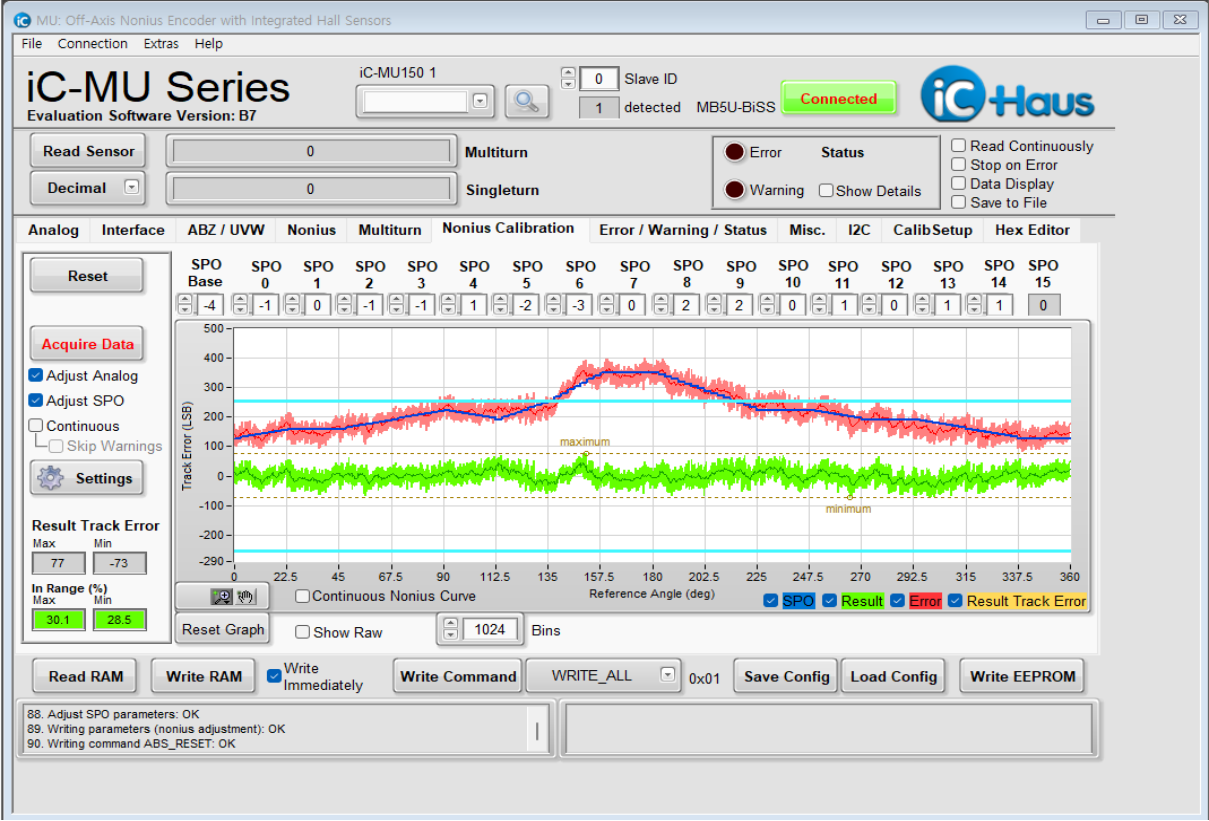
Support Customized Design
We support customization to meet different clients’ requirements for magnetization methods and installation:
- Such as the number of magnetic pole pairs and magnetization patterns.
- Such as adhesive bonding and bolt fastening.

Showing all 6 results

